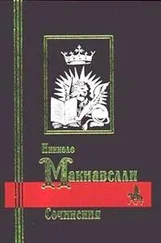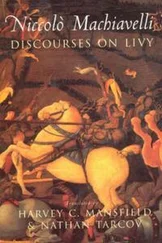Having been the first who put a stop to so many evils, Theodoric deserves the highest praise: for during the thirty–eight years he reigned in Italy, he brought the country to such a state of greatness that her previous sufferings were no longer recognizable. But at his death, the kingdom descending to Atalaric, son of Amalasontha, his daughter, and the malice of fortune not being yet exhausted, the old evils soon returned; for Atalaric died soon after his grandfather, and the kingdom coming into the possession of his mother, she was betrayed by Theodatus, whom she had called to assist her in the government. He put her to death and made himself king; and having thus become odious to the Ostrogoths, the emperor Justinian entertained the hope of driving him out of Italy. Justinian appointed Belisarius to the command of this expedition, as he had already conquered Africa, expelled the Vandals, and reduced the country to the imperial rule.
Belisarius took possession of Sicily, and from thence passing into Italy, occupied Naples and Rome. The Goths, seeing this, slew Theodatus their king, whom they considered the cause of their misfortune, and elected Vitiges in his stead, who, after some skirmishes, was besieged and taken by Belisarius at Ravenna; but before he had time to secure the advantages of his victory, Belisarius was recalled by Justinian, and Joannes and Vitalis were appointed in his place. Their principles and practices were so different from those of Belisarius, that the Goths took courage and created Ildovadus, governor of Verona, their king. After Ildovadus, who was slain, came Totila, who routed the imperial forces, took Tuscany and Naples, and recovered nearly the whole of what Belisarius had taken from them. On this account Justinian determined to send him into Italy again; but, coming with only a small force, he lost the reputation which his former victories had won for him, in less time than he had taken to acquire it. Totila being at Ostia with his forces, took Rome before his eyes; but being unable to hold or to leave the city, he destroyed the greater part of it, drove out the citizens, and took the senators away from him. Thinking little of Belisarius, he led his people into Calabria, to attack the forces which had been sent from Greece.
Belisarius, seeing the city abandoned, turned his mind to the performance of an honourable work. Viewing the ruins of Rome, he determined to rebuild her walls and recall her inhabitants with as little delay as possible. But fortune was opposed to this laudable enterprise; for Justinian, being at this time assailed by the Parthians, recalled him; and his duty to his sovereign compelled him to abandon Italy to Totila, who again took Rome, but did not treat her with such severity as upon the former occasion; for at the entreaty of St. Benedict, who in those days had great reputation for sanctity, he endeavored to restore her. In the meantime, Justinian having arranged matters with the Parthians, again thought of sending a force to the relief of Italy; but the Sclavi, another northern people, having crossed the Danube and attacked Illyria and Thrace, prevented him, so that Totila held almost the whole country. Having conquered the Slavonians, Justinian sent Narses, a eunuch, a man of great military talent, who, having arrived in Italy, routed and slew Totila. The Goths who escaped sought refuge in Pavia, where they created Teias their king. On the other hand, Narses after the victory took Rome, and coming to an engagement with Teias near Nocera, slew him and routed his army. By this victory, the power of the Goths in Italy was quite annihilated, after having existed for seventy years, from the coming of Theodoric to the death of Teias.
No sooner was Italy delivered from the Goths than Justinian died, and was succeeded by Justin, his son, who, at the instigation of Sophia, his wife, recalled Narses, and sent Longinus in his stead. Like those who preceded him, he made his abode at Ravenna, and besides this, gave a new form to the government of Italy; for he did not appoint governors of provinces, as the Goths had done, but in every city and town of importance placed a ruler whom he called a duke. Neither in this arrangement did he respect Rome more than the other cities; for having set aside the consuls and senate, names which up to this time had been preserved, he placed her under a duke, who was sent every year from Ravenna, and called her the duchy of Rome; while to him who remained in Ravenna, and governed the whole of Italy for the emperor, was given the name of Exarch. This division of the country greatly facilitated the ruin of Italy, and gave the Lombards an early occasion of occupying it. Narses was greatly enraged with the emperor, for having recalled him from the government of the province, which he had won with his own valor and blood; while Sophia, not content with the injury done by withdrawing him, treated him in the most offensive manner, saying she wished him to come back that he might spin with the other eunuchs. Full of indignation, Narses persuaded Alboin, king of the Lombards, who then reigned in Pannonia, to invade and take possession of Italy.
The Lombards, as was said before, occupied those places upon the Danube which had been vacated by the Eruli and Turingi, when Odoacer their king led them into Italy; where, having been established for some time, their dominions were held by Alboin, a man ferocious and bold, under whom they crossed the Danube, and coming to an engagement with Cunimund, king of the Zepidi, who held Pannonia, conquered and slew him. Alboin finding Rosamond, daughter of Cunimund, among the captives, took her to wife, and made himself sovereign of Pannonia; and, moved by his savage nature, caused the skull of Cunimund to be formed into a cup, from which, in memory of the victory, he drank. Being invited into Italy by Narses, with whom he had been in friendship during the war with the Goths, he left Pannonia to the Huns, who after the death of Attila had returned to their country. Finding, on his arrival, the province divided into so many parts, he presently occupied Pavia, Milan, Verona, Vicenza, the whole of Tuscany, and the greater part of Flamminia, which is now called Romagna. These great and rapid acquisitions made him think the conquest of Italy already secured; he therefore gave a great feast at Verona, and having become elevated with wine, ordered the skull of Cunimund to be filled, and caused it to be presented to the queen Rosamond, who sat opposite, saying loud enough for her to hear, that upon occasion of such great joy she should drink with her father. These words were like a dagger to the lady's bosom and she resolved to have revenge. Knowing that Helmichis, a noble Lombard, was in love with one of her maids, she arranged with the young woman, that Helmichis, without being acquainted with the fact, should sleep with her instead of his mistress. Having effected her design, Rosamond discovered herself to Helmichis, and gave him the choice either of killing Alboin, and taking herself and the kingdom as his reward, or of being put to death as the ravisher of the queen. Helmichis consented to destroy Alboin; but after the murder, finding they could not occupy the kingdom, and fearful that the Lombards would put them to death for the love they bore to Alboin, they seized the royal treasure, and fled with it to Longinus, at Ravenna, who received them favorably.
During these troubles the emperor Justinus died, and was succeeded by Tiberius, who, occupied in the wars with the Parthians, could not attend to the affairs of Italy; and this seeming to Longinus to present an opportunity, by means of Rosamond and her wealth, of becoming king of the Lombards and of the whole of Italy, he communicated his design to her, persuaded her to destroy Helmichis, and so take him for her husband. To this end, having prepared poisoned wine, she with her own hand presented it to Helmichis, who complained of thirst as he came from the bath. Having drunk half of it, he suspected the truth, from the unusual sensation it occasioned and compelled her to drink the remainder; so that in a few hours both came to their end, and Longinus was deprived of the hope of becoming king.
Читать дальше












